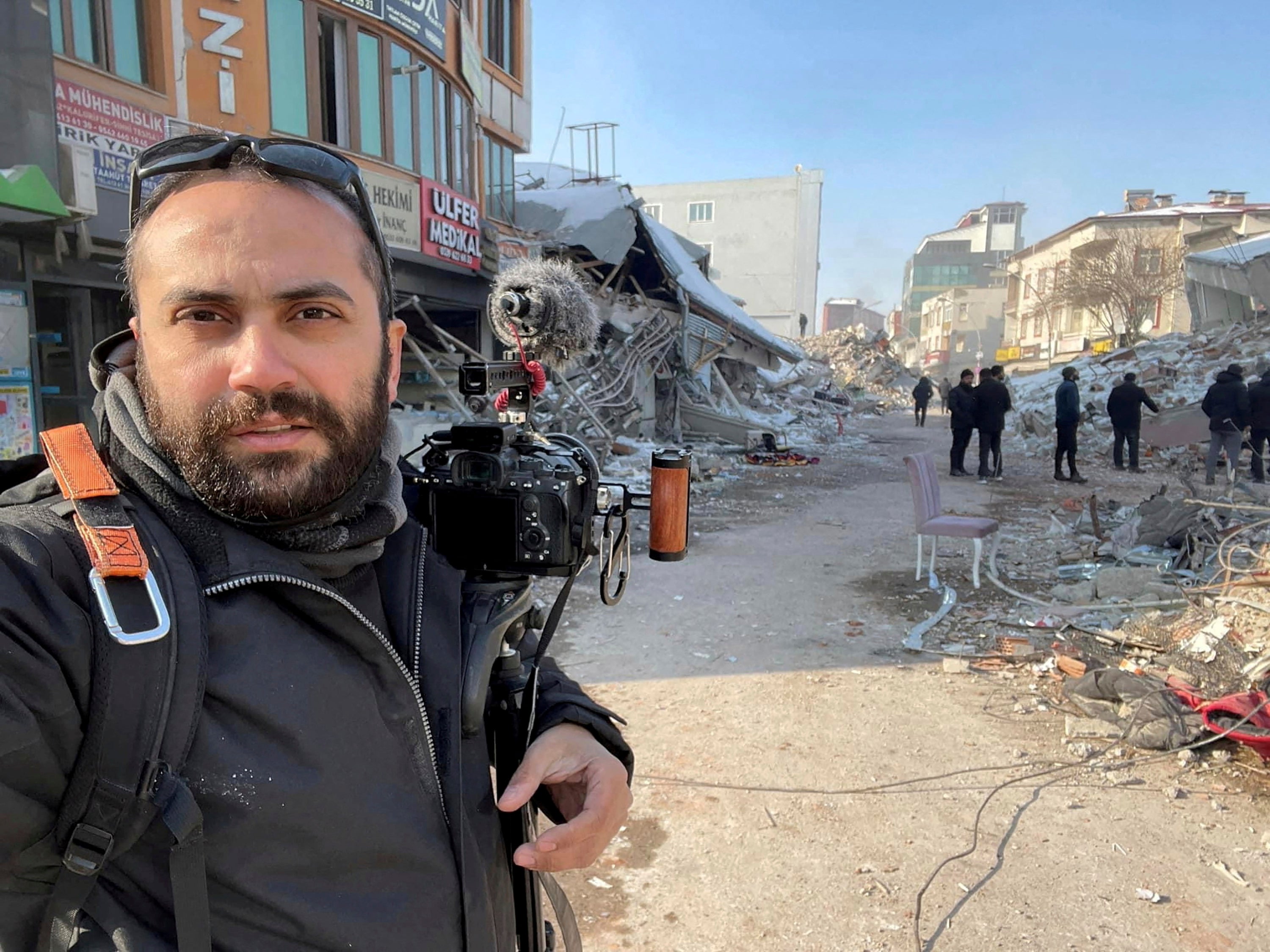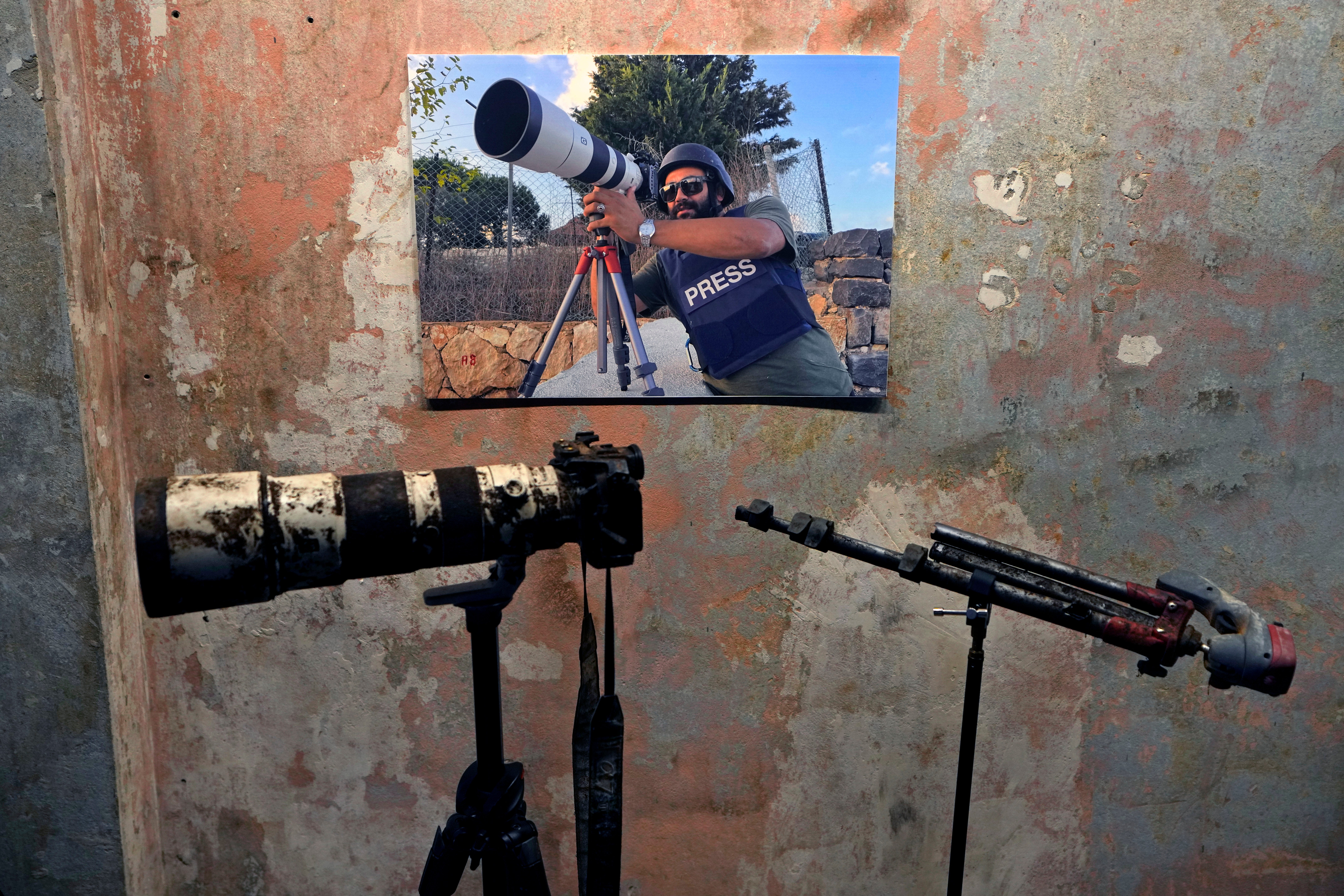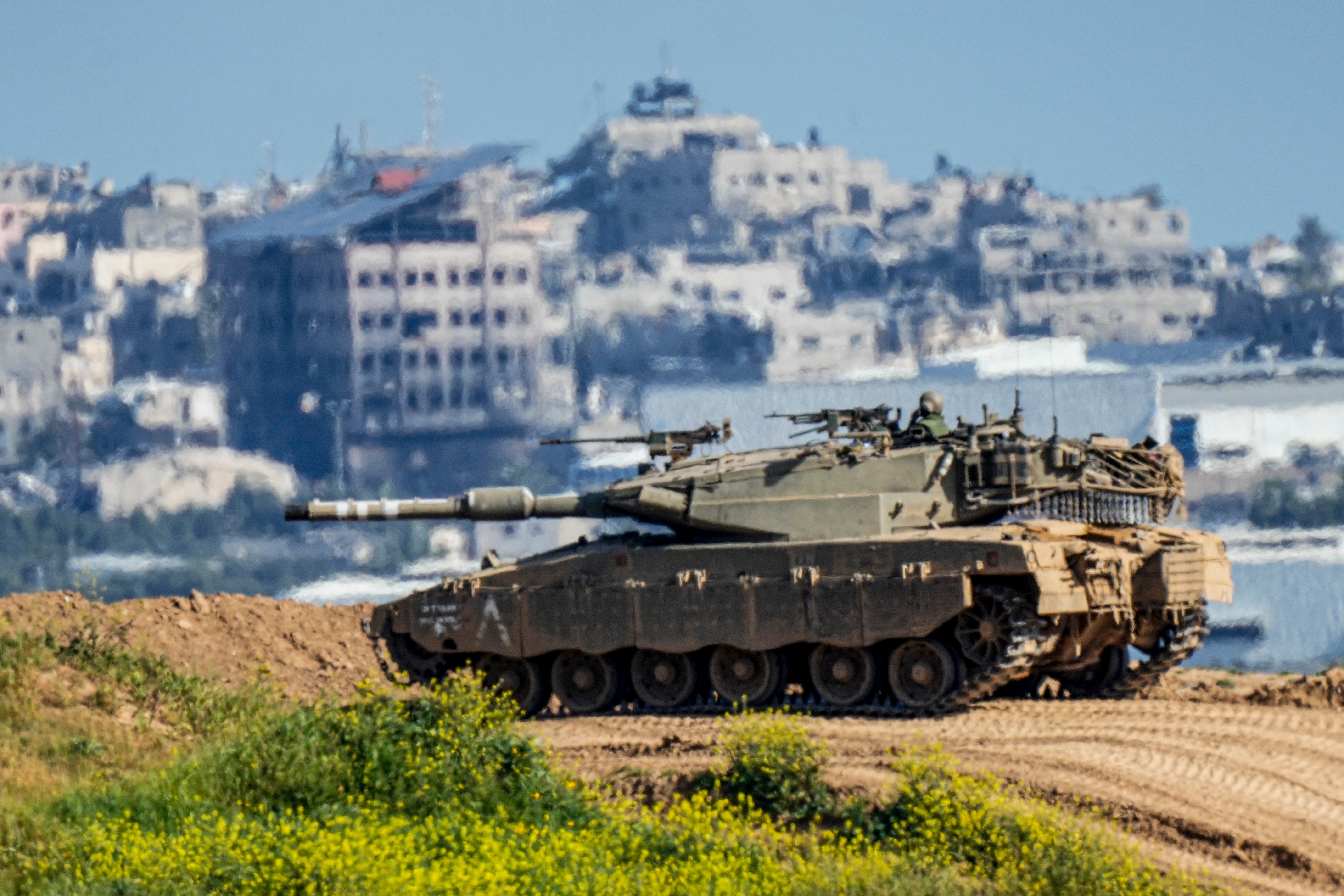UN report says Israeli tank strike killed clearly identifiable journalist
Report says two Israeli tank rounds hit reporters, killing one and injuring six others at the scene

An Israeli tank killed Reuters reporter Issam Abdallah in Lebanon last year by firing two 120 mm rounds at a group of “clearly identifiable journalists” in violation of international law, a UN investigation into the October 13 incident has found.
The investigation by the United Nations Interim Force in Lebanon (UNIFIL), summarised in a report seen by Reuters, said its personnel did not record any exchange of fire across the border between Israel and Lebanon for more than 40 minutes before the Israeli Merkava tank opened fire.
“The firing at civilians, in this instance clearly identifiable journalists, constitutes a violation of UNSCR 1701 (2006) and international law,” the UNIFIL report said, referring to Security Council resolution 1701.
The seven-page report dated February 27 said further: “It is assessed that there was no exchange of fire across the Blue Line at the time of the incident. The reason for the strikes on the journalists is not known.”
Under resolution 1701, adopted in 2006 to bring an end to the war between Israel and Lebanese Hezbollah fighters, UN peacekeepers were deployed to monitor a ceasefire along the 120 km (75 mile) demarcation line, or Blue Line, between Israel and Lebanon.
As part of their mission, UN troops record violations of the ceasefire and investigate the most egregious cases.
Besides killing Abdallah, the two tank rounds also wounded six other journalists at the scene.

Asked about the UNIFIL report, Israel Defense Forces (IDF) spokesperson Nir Dinar said Hezbollah had attacked the IDF near the Israeli community of Hanita on October 13. It responded with artillery and tank fire to remove the threat and subsequently received a report that journalists had been injured.
“The IDF deplores any injury to uninvolved parties, and does not deliberately shoot at civilians, including journalists,” Dinar said. “The IDF considers the freedom of the press to be of utmost importance while clarifying that being in a war zone is dangerous.”
He said the General Staff’s Fact Finding and Assessment Mechanism, which is responsible for reviewing exceptional events, will continue to examine the incident.
According to the IDF’s website, the fact finding team submits its reviews to the Israeli military’s legal affairs department, which decides whether a case warrants a criminal investigation.

Reuters Editor-in-Chief Alessandra Galloni has called on Israel to explain how the attack that killed Abdallah, 37, could have happened and to hold those responsible to account.
The UNIFIL report was sent to the United Nations in New York on Feb. 28 and has been shared with the Lebanese and Israeli militaries, two people familiar with the matter said.
“(The) IDF should conduct an investigation into the incident and a full review of their procedures at the time to avoid a recurrence,” the report said in its recommendations. “The IDF should share their investigation’s findings with UNIFIL.”
For its investigation, UNIFIL sent a team to visit the site on Oct. 14, and also received contributions from the Lebanese Armed Forces and from an unnamed witness who was present on the hill when the strikes occurred, the report said.
Details of incidents in UNIFIL’s area of operations are included in regular reports by the UN Secretary-General on the implementation of Security Council resolution 1701. UNIFIL’s investigations, however, are not usually made public and Reuters was unable to determine if there would be any UN follow-up.
UNIFIL spokesperson Andrea Tenenti said he was not in a position to discuss the investigation.
UNIFIL’s findings lend further support to a Reuters investigation published on Dec. 7 that showed that seven journalists from Agence France-Presse, Al Jazeera and Reuters, were hit by two 120 mm rounds fired by a tank 1.34 km away in Israel.
The group of reporters had been filming cross-border shelling from a distance in open area on a hill near the Lebanese village of Alma al-Chaab for nearly an hour before the attack.
The day afterwards, the IDF said it already had visuals of the incident and it was being investigated. The IDF has not published a report of its findings to date.
UNIFIL said in its report that it sent a letter and a questionnaire to the IDF requesting their assistance. The IDF replied with a letter but did not answer the questionnaire.
Reuters has not seen a copy of the IDF letter, the contents of which were summarized in the UNIFIL report.
Join our commenting forum
Join thought-provoking conversations, follow other Independent readers and see their replies
95Comments